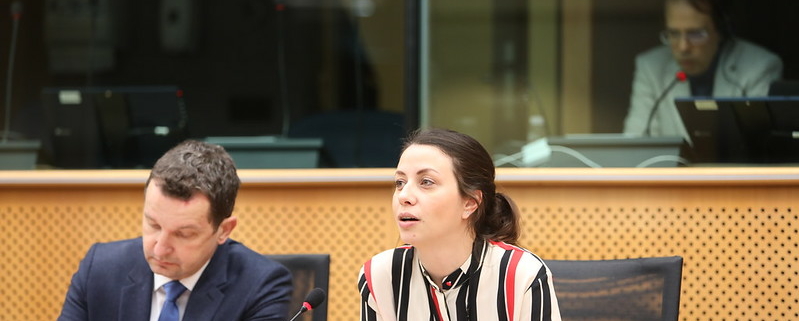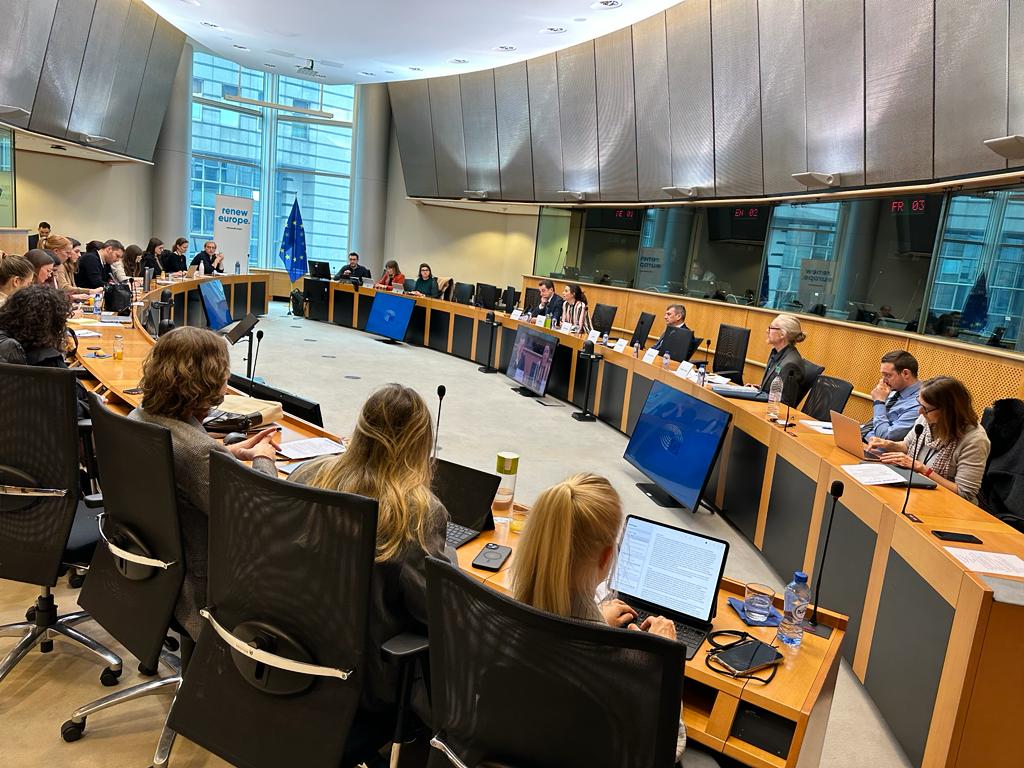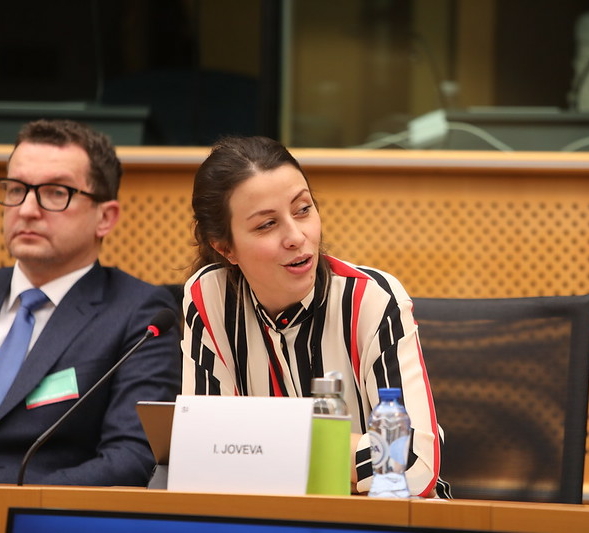On Wednesday, 22 March 2023, the Renew Europe political group in the European Parliament organised an exchange of views on the European Media Freedom Act (EMFA) with media experts. “For me, it is important to have an EU-wide framework with some common basic principles. (…) It is the responsibility of all Member States and all citizens to adhere to and protect the core values of our democracies, which includes a free media,” explained MEP Irena Joveva, chairing the first panel.
As Joveva emphasised, it is the responsibility of all Member States to respect and protect the Union’s fundamental values. She recalled that journalists are under immense pressure, which makes it difficult for them to do their job in accordance with their professional ethics and provide the public with independent and critical information. She mentioned the importance of protecting journalists from strategic lawsuits, and of having measures in place against spying on them, silencing them and exercising undue political interference in editorial independence. She noted that private media are also indispensable as they ensure pluralism and open public debate, but that we also need clear transparency and scrutiny of state advertising, concentration and media ownership – including cross-border ownership. That is why the European Media Freedom Act is needed, she said clearly.
This was echoed by European Commission Vice-President Vera Jourova, who said in her opening address that EMFA is about common principles and standards across the European Union that will allow media and journalists to do their job freely:
“We put for the first time in EU law that Member States shall not interfere in the editorial policies and decisions by the media. (…) We want EU countries to set in law objective criteria for appointing the managers and governing boards. The Act also states that the financing of public service media should be sufficient and predictable. This is based on the Council of Europe guidelines Member States have subscribed to. We also propose clear provisions with stronger safeguards against the surveillance of journalists.”
The first panellist, Professor Beata Klimkiewicz (Poland), focused on the power of the media in interpreting socio-political reality. “The media’s interpretation influences our perception of the world around us. (…) The public expects the media to be credible and act according to certain standards of profession on the one hand, but also to be accountable on the other.”
She went on to highlight the importance of the allocation of economic resources to media outlets, which makes them vulnerable to foreign interference and manipulation. “The allocation of economic resources (…) to the media calls for greater transparency and fairness in the allocation of state advertising. Problems with transparency of media funding occur in many European countries,” she warned.
In continuation, Professor Dr Marko Milosavljević (Slovenia) said that the way the public interprets shared content largely depends on the medium that delivers it and on self-regulation, which is often unsatisfactory or even absent. “Very large – and in a way completely irresponsible – online platforms can still decide, very arbitrarily, where and why and how certain media content will be placed, won’t be placed, will be blocked, and won’t be accessible by the public,” he emphasised.
As he explained, he regularly sees online platforms removing legitimate, legally permitted journalists’ news, stories or images for one reason or another. Therefore, in his view, the European Media Freedom Act needs to be stronger in this context, to set clear requirements.
He also spoke about the importance of a strong media environment and professional journalism for democratic societies, and stressed the universal nature of media freedom issues, which the EU needs to address in a uniform manner, as it has done with the Digital Services Act: “It is important to have a universal European document, a legal basis for all EU countries, regardless of whether all or only some Member States have problems with adequate regulation of the media.”
Professor Dr Gábor Polyák (Hungary) said that in the European Union, without media freedom, there is no free European media market, no free and fair European elections, and no guarantee of detection of the misuse of EU funds. “At the moment, we have a variety of national laws which, despite their existence, allow illiberal populists to gain strength. The Commission’s proposal needs to be improved and a compromise found among the interests of the Member States to meet the need to strengthen media freedom in Europe,” he stated.
In his view, the most important task of the newly created supervisory body, which will strengthen the European coordination of national media regulators, will be to monitor and objectively assess the impartiality of the information activities of the media.
MEP Joveva pointed out, among other things, that it is important to have a set of common rules and regulatory cooperation within the EU’s single market, because what happens in one Member State has an impact on other Member States and on the Union as a whole.
“It is also important to give the media the special place it deserves in our market and ensure clear transparency and public scrutiny of issues such as media concentration, media ownership, the allocation of state advertising and, of course, the situation regarding online platforms.”
She explained that it will be necessary to find common and general principles that will apply to one and all, and will complement safeguards. “With these and through fostering cooperation among regulators, with the help of experts, we can only improve European media standards,” concluded Joveva.
You can watch the full event (in English) here.







Leave a Reply
Want to join the discussion?Feel free to contribute!